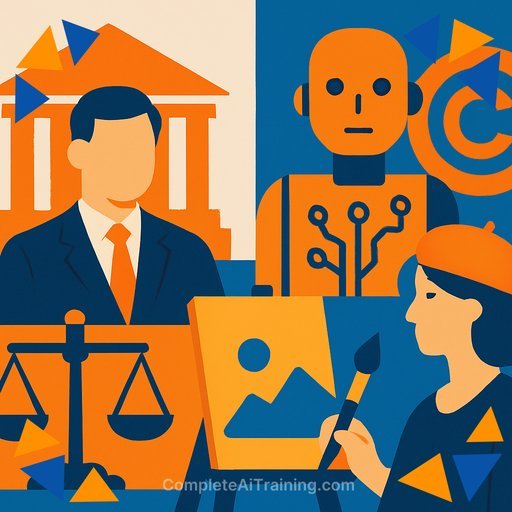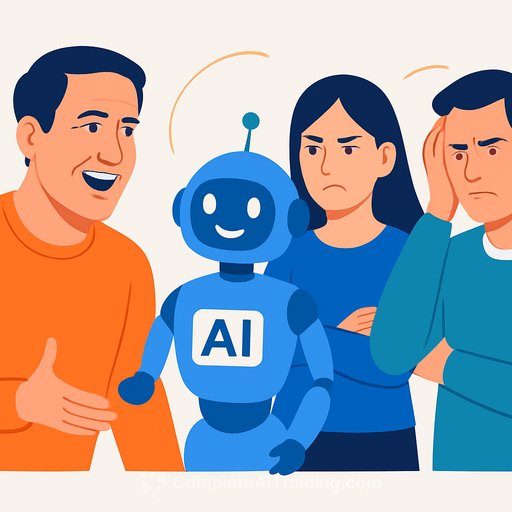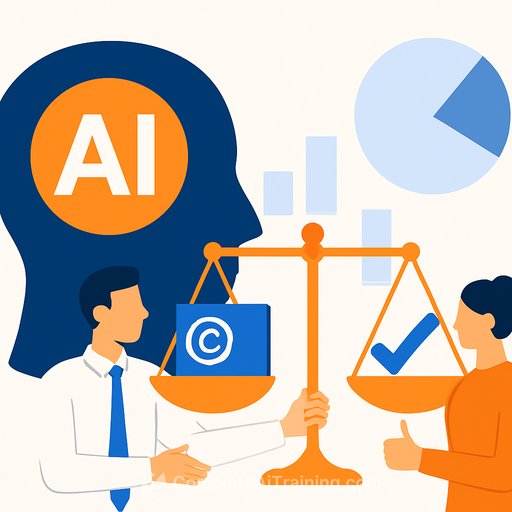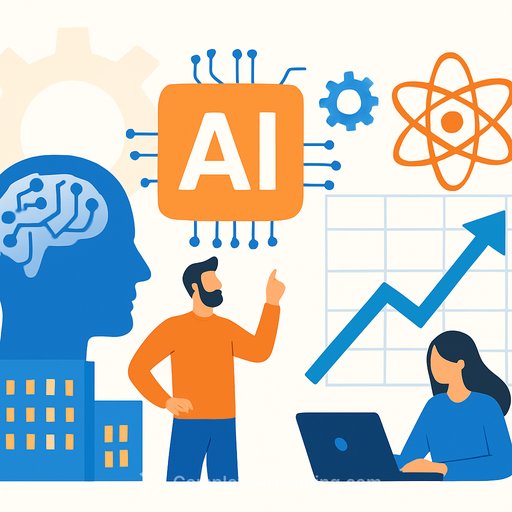Protecting Creatives from AI Theft: What Government Must Do-and What You Can Do Now
The message is clear: Big platforms want free access to your work. A recent political signal suggested a soft stance toward that goal, and that puts your income and rights at risk. Creativity is not free fuel for machine learning. Consent, credit, and compensation are non-negotiable.
While policymakers debate, your catalog is being scraped, summarized, and remixed. Waiting is a bad strategy. Here's what needs to change at the policy level-and what you can do today to protect your work and keep getting paid.
What Big Tech wants vs. what creatives need
- Platforms want: broad "fair use" for training, weak consent rules, and minimal transparency on datasets.
- Creatives need: opt-in by default, clear attribution, enforceable licensing, and real penalties for misuse.
- The risk: your style becomes a commodity while your name and paycheck disappear.
What government should do (fast)
- Consent-first training: Make model training opt-in, with traceable licenses and payment.
- Dataset transparency: Public registries of training sources, versions, and update history.
- Enforce no-scrape signals: Robots and metadata signals must have legal weight and penalties for ignoring them.
- Statutory licensing floor: If opt-in is bypassed, set mandatory fees and a collective payout system.
- Attribution by default: Visible, verifiable credit for source artists and writers where style or content is used.
- Independent audits: Third-party checks on models, datasets, and provenance claims.
Protect your work today (practical steps)
These actions won't stop everything, but they reduce exposure and strengthen your legal position.
- Block common AI scrapers (robots.txt): Add entries such as:
- User-agent: GPTBot / Disallow: /
- User-agent: Google-Extended / Disallow: /
- User-agent: CCBot / Disallow: /
- User-agent: ClaudeBot / Disallow: /
- User-agent: PerplexityBot / Disallow: /
- Use provenance and rights metadata: Embed C2PA or IPTC data so claims can be verified and misuse traced. Learn more at c2pa.org.
- Publish a clear AI policy: On your site and portfolios: "No AI training, dataset creation, or synthetic derivatives without a paid license."
- Licensing terms in contracts:
- Prohibit model training and dataset inclusion.
- Require attribution for style or template reuse.
- Set fees for any generative use cases.
- Watermark and monitor: Add subtle, persistent marks and track reuse via reverse image/text search. Log evidence for takedowns.
- Register key works: Where available, register with copyright offices to strengthen enforcement.
- Use controlled previews: Share low-res, excerpted, or time-limited samples. Keep full-resolution files off public pages.
Business moves that keep you paid
- Sell outcomes, not hours: Packages, retainers, and subscriptions are harder to undercut than one-off tasks.
- Offer "human-only" and "AI-assisted" tiers: Let clients choose; price for care, originality, and accountability.
- Own your distribution: Email list, private community, and direct sales reduce platform risk.
- Make your style scarce: Limited editions, signed prints, behind-the-scenes process-things models can't replicate.
If you work with AI, set guardrails
- Keep source libraries private: Don't upload client files or unique assets to public tools.
- Use local or enterprise tools where possible: Prefer vendors with clear "no training" contracts.
- Document your process: Keep prompts, assets, and drafts. This helps prove originality if challenged.
Reality check
AI isn't going away, but neither are your rights. Policy should protect consent and income, not just platform scale. While that gets sorted, lock down your catalog, price your expertise, and make your work harder to strip of context.
If you want structured upskilling that respects creative IP and shows safe workflows, see Complete AI Training: Courses by Job.
Your membership also unlocks:






